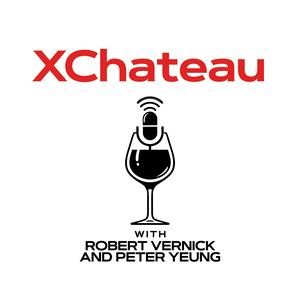Efficiency, then Sustainability with Praveen Penmetsa, Monarch Tractor
From 200 mph electric cars to 20 mph electric tractors, Praveen Penmetsa, CEO of Monarch Tractor, leveraged his passion and expertise in vehicles, robotics, and batteries to develop the first smart, electric tractor. Making farmers more profitable and efficient first, and then sustainable, are the core tenets that drive Monarch’s business. Praveen discusses the core benefits of using an electric tractor and how it works with farmers to take advantage of government incentives, making farming more efficient and cost-effective. Detailed Show Notes: Praveen’s background: mechanical engineering, loves fast cars, worked on electric vehicles, robots, and battery systemsFounded Monarch in 2018, the company is currently the only company selling smart, electric tractorsNow on four continents, with most sales in the US, pilots internationallySolution is a smart electric tractor with an app and piloting autonomous drivingFits in 5’ rowsRuntime 10-14 hrs for pushing, 8-11 hrs for mowing, 4-6 hrs for heavy operations; takes ~6 hours to chargeCore markets - vineyards #1, dairy #2, orchards, horse ranchesCore benefitsSave $7-12/hr on diesel savingsRemote service and support, day and night - can submit a service ticket on the machine and get help remotelyProduct gets better over time with SW updates (e.g., released the ‘row follow’ feature)Can power other things, be used like a generator (e.g., night lights for harvest)Easier to train operators (smart screen vs 20 manual controls)Environmental impacts - reduces carbon emissionsWith increasing automation (mowing is 1st operation), more labor savingsAutonomous driving has guidelines by CA OSHA (need signs that the autonomous tractor is running and no people in the block), but there are no legal guidelines in other placesPricing$90k baseline price + options + subscriptionsGov’t incentives can make it cheaper than a diesel tractor, 20-70% savingsMonarch helps apply for subsidies, including charging infrastructure and solar installationSubscription charge for connectivity and SW has various levels; some charges can be offset by incentives with carbon offset reporting (e.g., Dannon gives dairy farmers incentive payments for the carbon offsets)ROI driven by tractor usage, payback ~2 years; has an ROI calculator on the website; needs to be cheaper and more efficient before sustainability elements come into playMost farmers want autonomy to reduce labor costsSells through a direct sales team and dealersMarketing driven by non-electric tractors today, podcasts are helpful, social media, and demos have been very effectiveSocial media, primarily Facebook and LinkedIn for owners, Google SEO, and local dealer supportDemos are essential; most farmers want to try before they buyPartnering with other companies to use their technology inside, also partnered with AgScout to leverage AI for vineyardsBarriers to purchase primarily worry about service and support, and wanting more autonomy for labor savingsContinuously update both HW and SW on machines, some tractors now close to 4,000 hours of operation (vs. standard tractors need to be replaced after 4-6k hours) Hosted on Acast. See acast.com/privacy for more information.


